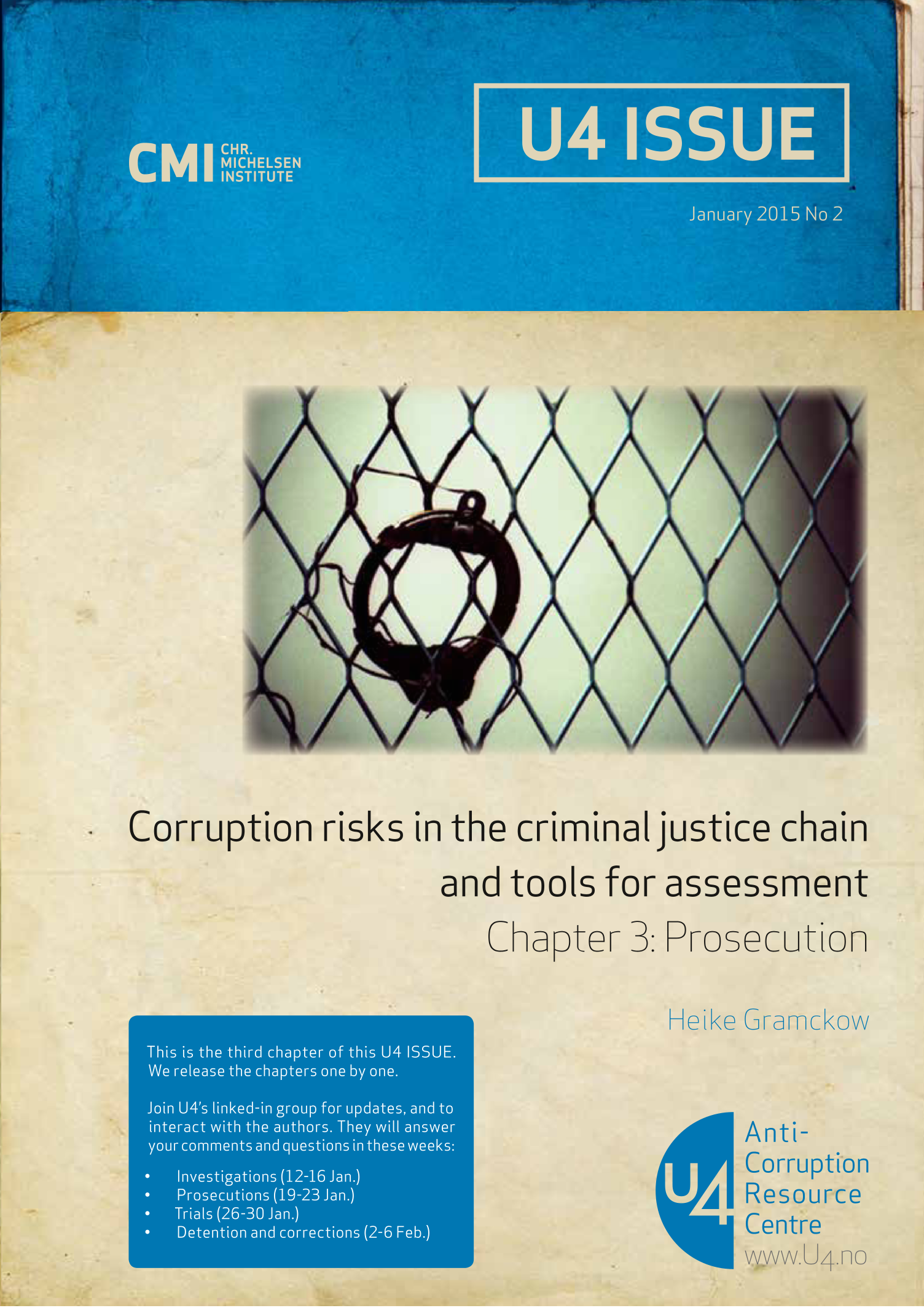U4 Issue
Corruption risks in the criminal justice chain and tools for assessment. Chapter 3: Prosecution
This chapter provides a general overview of the basic activities and responsibilities in prosecution offices and the most common risks for corruption in prosecution. Attention to corruption risks in the prosecution service is a recent development. Most examples of good practices in addressing these risks are from developed countries. Only a few cross-country assessments, such as evaluations by the Council of Europe and the Organization for American States, have been conducted to date. Nonetheless, a basic assessment of corruption risks – followed by appropriate adjustments to policies and processes – can be done with limited resources, and with external expert advice if needed. The key success factor for this approach is leadership commitment. Agency leaders need to protect their staff from exposure to corruption opportunities, identify corruption risks in all operations and decision-making processes, and use the results to establish clear policies, guidelines, and performance standards, as well as systems for internal review.
Join U4’s linked-in group for updates, and to interact with the authors. They will respond to your comments and questions in these weeks:
• Investigations (12-16 Jan.) Jay Albanese
• Prosecutions (19-23 Jan.) Heike Gramckow
• Trials (26-30 Jan.) Victoria Jennett
• Detention and corrections (2-6 Feb.) Gary Hill

Cite this publication
Gramckow, H. (2015) Corruption risks in the criminal justice chain and tools for assessment. Chapter 3: Prosecution. Bergen: Chr. Michelsen Institute (U4 Issue 2015:2) 18 p.
Disclaimer
All views in this text are the author(s)’, and may differ from the U4 partner agencies’ policies.
This work is licenced under a Creative Commons Attribution-NonCommercial-NoDerivatives 4.0 International licence (CC BY-NC-ND 4.0)


